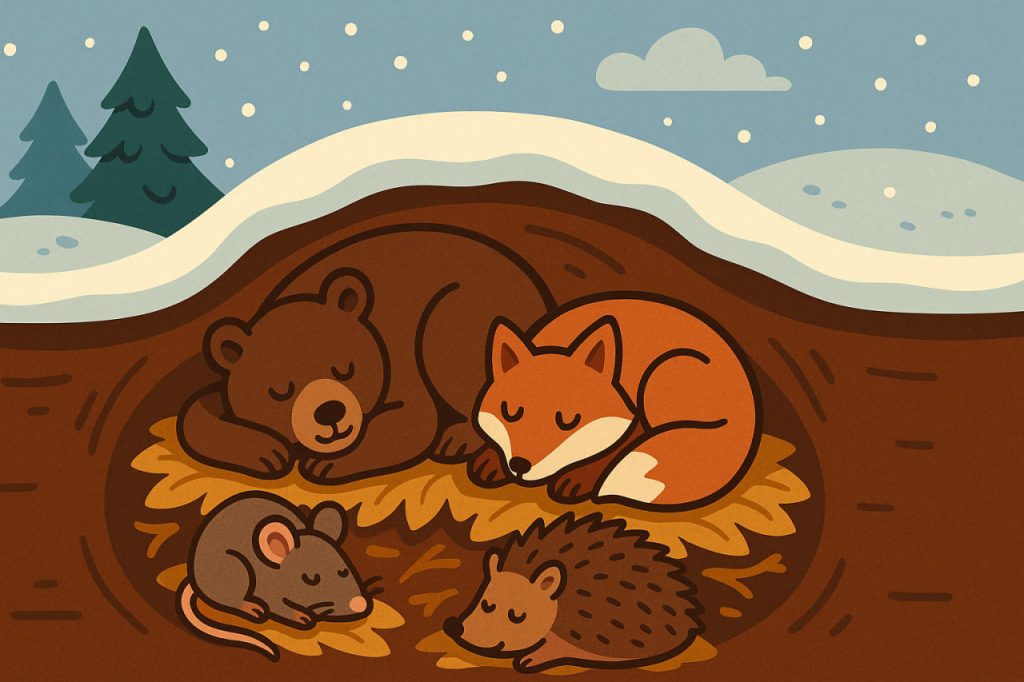Hibernation is a fascinating survival strategy used by many animals to cope with harsh environmental conditions, particularly cold winters and food scarcity. During hibernation, animals enter a state of deep sleep that allows them to conserve energy by significantly slowing their bodily functions. This remarkable adaptation helps ensure their survival until conditions improve.
What Is Hibernation?
Hibernation is a biological process where an animal’s metabolic rate drops dramatically. Its heart rate, breathing, and body temperature all decrease, sometimes to near-death levels. In this state, the animal uses stored body fat as its primary energy source. Hibernation can last from a few days to several months, depending on the species and climate.
Why Do Animals Hibernate?
The main reasons animals hibernate include:
- Surviving winter: In cold climates, food is often unavailable during winter. Hibernation allows animals to avoid starvation.
- Conserving energy: By slowing down metabolism, animals require less fuel to survive.
- Avoiding extreme temperatures: Some species in hot or dry areas undergo aestivation, a similar state during extreme heat or drought.
Which Animals Hibernate?
A wide variety of animals hibernate, including:
- Mammals: Bears, bats, hedgehogs, ground squirrels, and some rodents.
- Reptiles and amphibians: Snakes, turtles, and frogs may hibernate in mud or under rocks.
- Insects: Some butterflies, bees, and ladybugs enter a dormant state during cold months.
Interestingly, not all hibernators sleep continuously. For example, bears can slightly awaken during hibernation but remain in a low-energy state.
How Do Animals Prepare for Hibernation?
Before entering hibernation, animals usually:
- Eat heavily to build up fat reserves.
- Find or create shelter, such as burrows, dens, or caves.
- Slowly transition into hibernation as days shorten and temperatures drop.
This preparation is crucial, as the animal won’t eat or drink during hibernation.
What Happens During Hibernation?
While hibernating, an animal:
- Breathes very slowly—sometimes only a few times per minute.
- Lowers its body temperature to just above freezing (for some species).
- Lives off its fat stores without moving or waking for extended periods.
In spring, as temperatures rise, the animal gradually awakens, often weak and hungry.
Why Is Hibernation Important?
Hibernation is essential for survival in many ecosystems. It allows species to continue thriving in places where year-round activity would be impossible. Scientists also study hibernation to learn how it might help in medicine, such as slowing metabolism during surgery or space travel.
Glossary
- Hibernation – A state of deep sleep that allows animals to survive without eating for long periods.
- Metabolic rate – The speed at which the body uses energy.
- Aestivation – A hibernation-like state during hot or dry periods.
- Dormant – Temporarily inactive or asleep.
- Fat reserves – Stored body fat used for energy during periods without food.


